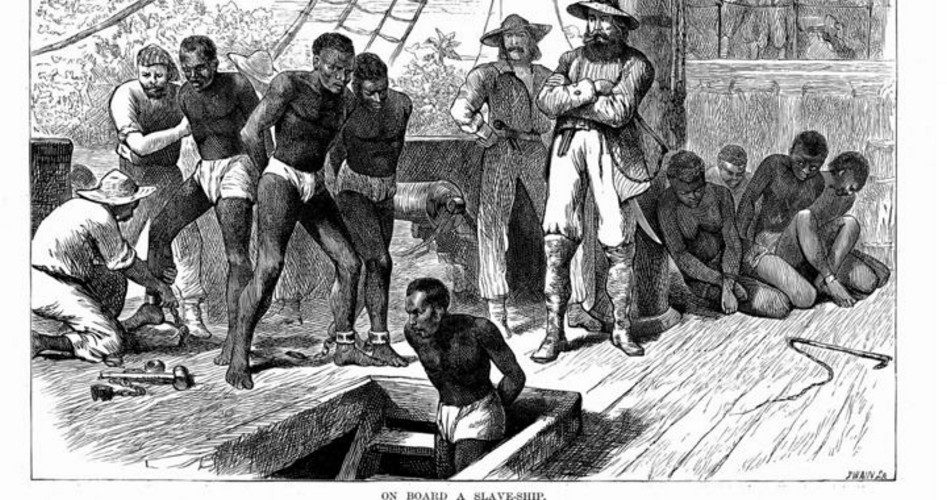
The recent decision of the Department of Justice to drop its legal fight concerning the nickname of the Washington Redskins brings to mind the warning to the National Football League (NFL) by Congressman Tom Cole (R-Okla.) that if the league chose to keep the Redskins’ mascot for one of its teams, it would be “on the wrong side of history.”
With the U.S. Supreme Court decision Matal v. Tam, in which the court held that the U.S. Patent and Trademark Office did not have the right to deny trademark protection simply because some Americans objected to the trademark as “disparaging,” it became apparent that the effort to deny such protection for the Redskins was doomed. Matal v. Tam concerned a band of Asian-Americans calling themselves the Slants, but the application of the case to the Redskins’ case was obvious. The court held, in a unanimous decision, that the 71-year-old trademark law that allowed the denial of trademark protection for allegedly disparaging terms was an infringement of the right of free speech.
Cole had joined with a Democratic member of Congress, Senator Maria Cantwell of Washington State, in demanding that the Redskins team change its mascot. He brushed aside the importance of a poll that showed that 90 percent of American Indians supported the Redskins’ name.
His argument that the change should be made because otherwise the NFL would be “on the wrong side of history” raises some interesting issues.
That argument has most often been used by those advocating for this or that social change, such as the effort to legalize same-sex “marriage,” the acceptance of the assertion that men can become women and vice-versa, and similar causes. It seems strange that a Republican would trot out “the wrong side of history” argument.
Cole has just a 52 percent score on the Freedom Index of The New American magazine. This index rates members of Congress as to their fidelity to the principles of the U.S. Constitution. His score certainly does not indicate that he is much of a conservative; but on the other hand, it would not predict that he would use a favorite phrase of the Left.
In one way, attempting to win an argument by accusing one’s opponent of being “on the wrong side of history” is really another version of what political scientists call the “Bandwagon Approach.” It is an appeal to those who like to be on the winning side. The teenagers’ version is “everyone else is doing it.” In this incarnation, it is a prediction of what a majority will think in the future.
Is this a compelling argument? The reasoning is that, “Maybe not today, but someday in the future, you will be in the minority.” But does being in the majority make one correct? I think not.
Telling someone they are in the wrong because they are in the minority is not a reasoned argument; it is just propaganda.
It is also an effort to paint the opposition as in favor of some type of bigotry, because the unleashing of the “on the wrong side of history” weapon is usually accompanied with references to slavery and segregation. In other words, those bigots back then were “on the wrong side of history,” and if you oppose same-sex “marriage,” you are no better than Bull Connor enforcing segregation with a water hose, or a slave owner in the antebellum South using a bullwhip to get the cotton picked.
In the end, it presumes that we are getting progressively better, and that we are superior to those ignorant and bigoted folks in the past. It is the argument of the progressives that change is presumed to be good, and that those who resist change are just not as sophisticated as those using the phrase, at best, and are evil, at worst. However, as G.K. Chesterton once observed, “Don’t ever take a fence down until you know the reason it was put up.”
Karl Marx and his fellow socialists believed that history was moving toward a communist utopia. This is sometimes called the Marxist theory of history, or historical materialism. Anyone standing in the way of this communist “heaven on earth” was a reactionary, and was, in their view, “on the wrong side of history.”
To the Marxist, history is the history of the class struggle. Under Marxist theory, some group is always being oppressed by the ruling group. If legitimate concerns did not exist, the Marxists would create them. If real problems did exist, in order to get to the supposed Marxist utopia, the communists and their fellow leftists would at least exacerbate them. As retired tennis great John McEnroe found out, if he did not believe that female tennis player Serena Williams could beat any male player in the world, then he must be a sexist pig.
The differences between the progressives and the out-and-out communists is more of method than ultimate goal. And anyone who stands in the way is “on the wrong side of history.”
This is not to say that Tom Cole is a communist, or even a progressive. But he is guilty of using a phrase that is a favorite of those two groups, which sadly indicates how such left-wing propaganda is parroted by those who really should know better.
Image of slaveship: Clipart.com


